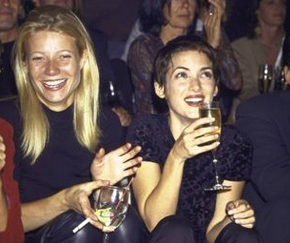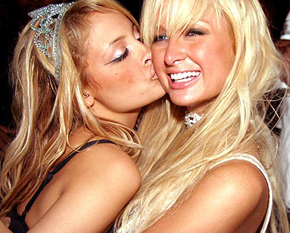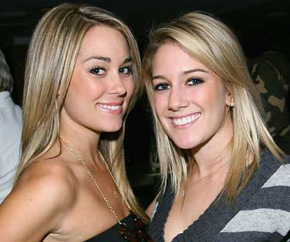Let it Go

Whether you call them toxic friends or frenemies (the latest amalgamated word), there’s no denying that some relationships are loaded with destructive drama that leave us feeling overall worse, rather than better, about ourselves. As Gwyneth Paltrow put it so eloquently (har har) in her recent GOOP newsletter, these are those “frenemies, hell bent on taking us down.”
For most of my adult life, the e.e. Cummings poem, Let it Go has been one of my favorites. My very loose (and incredibly simplified) interpretation of it is that when you let go of the gunk, in comes the good. Cummings is specifically speaking of relationships, which intrigues me because one of the hardest lessons I’ve had to learn is letting go, particularly, letting go of friendships that are on life support.

As I age, I’ve learned to appreciate the value of my time and am more judicious about whom I spend it with in a way that didn’t use to matter. And I’ve realized that sometimes certain people just bring out really bad traits in each other, whether it’s a business relationship, a marriage or a friendship. And I don’t buy into the idea that when relationships – especially between women – don’t work out that it’s about jealously – I think most of the time, you have to look in the mirror and figure out your own role in all of this.
I wanted to better understand the nature of relationships – why we engage with who we do and why, when a relationship turns toxic, we find it so hard to let go, particularly us girls. Maybe this is an issue for men too, but I’m most interested in women because it seems that we hold onto toxic things long after we should have let go. We tend to want to make things work. Whereas, men seem to be just a bit quicker on the trigger (again, just my working theory for now) casting things off and moving on with barely a glance in the rear-view mirror.

I’d been pondering this for a while when I decided to seek out an expert to see if they could validate my emotional observations watching the women in my life. That expert turned out to be Dr. Stephen Nowicki, the Charles Howard Candler Professor of Psychology at Emory University. Dr. Nowicki has been studying and teaching the Harry Stack Sullivan theory of self-concept for years.
Harry Stack Sullivan, the “father of American psychology,” postulated that our concept of ourselves is shaped from the earliest age by how others respond to us. For example, if someone we interact with is angry and depressed, we will draw the conclusion that we must not be so hot. If, on the other hand, that person is smiling and laughing, then we must be an okay person. In that way, the people you interact with essentially tell you who to become. Anything that violates your self-concept creates anxiety and so you are always teaching others the way they should respond back to you so you can confirm who you are.
The theory makes sense of when and why we stay in bad situations, it’s because the participants continually reinforce one another’s self-concepts.
He goes on to say, “This self-concept is sometimes very difficult to change – therapy, and interventions can help, but once formed, the concept of self becomes harder and harder to change especially when you’re not fully aware.” To actually effect change, “You have to make the person aware of what they are doing,” Dr. Nowicki continues.
So where does this fit into the notion of “toxic” friendships? In short, those friends that make us feel anxious or the feeling of “hell bent on taking us down” it’s likely a personality we do not mesh with. However, there is plenty of room for negotiation and ways to make it work. One example I asked Dr. Nowicki about was the concept of a “toxic” friend, he does recommend letting go. Essentially saying – if someone makes you feel bad or anxious and goes against your self concept then it’s not a relationship worth holding onto.
Here’s to letting them go. Surrounding ourselves with positive relationships that bring out our best self. To taking responsibility for our own actions, and being honest in our assessment of self. To owning it. To make way for the new relationships which bring out the goodness, and make you belly laugh until you cry.








